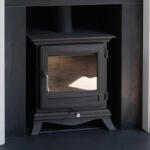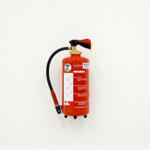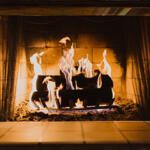

4 solid fuel safety tips for winter
With gas prices at a record high, it makes sense to turn down gas central heating and take advantage of solid fuel appliances such as wood-burning stoves and coal fires. However, solid fuel fires must be used with caution to alleviate the risk of house fires or carbon monoxide poisoning. Here are 4 vital solid fuel safety tips to keep in mind.
1. Sweep chimneys and clean stoves regularly
Blocked chimneys and stoves can inhibit the proper burning of fuels, increase the risk of fires, and lead to the appliance getting damaged. Sweep chimneys once each year if you use smokeless coal, twice each year if you use bituminous coal, and four times a year if you use logs. Clean out wood-burning stoves two to three times per year depending on how often they’re used.
2. Store fuel away from the fireplace or appliance
Radiated heat can cause solid fuel to burn when it is stored too close to fireplaces or appliances. Make sure logs and coal is stored well away from the fire. Preferably, you’ll store it in an airtight container outside and away from the house. If this isn’t possible, store it in a cool place that is separate from the fireplace or appliance, such as a cellar, garage or utility room.
3. Check safety alarms are working correctly
You should have both smoke and carbon monoxide detectors in your home. These devices are inexpensive and easy to use, and some fire stations provide and fit them for free if you’re having trouble doing it yourself. Detectors have test buttons that allow you to check they’re working correctly, so be sure to test them once every month and replace batteries immediately.
4. Get a fire extinguisher
Any home that runs solid fuel fires should have a fire extinguisher on hand just in case the fire gets out of control. Choose an extinguisher suitable for solid combustibles. Water (red label), water mist (white label), AFFF foam (cream label) and ABC powder (blue label) extinguishers are all suitable for solid fuels. Here at London Gases we’re a specialist provider of solid fuels so if you need any further advice or want to stock up on your supply of coal or logs ready for winter, be sure to get in touch.
